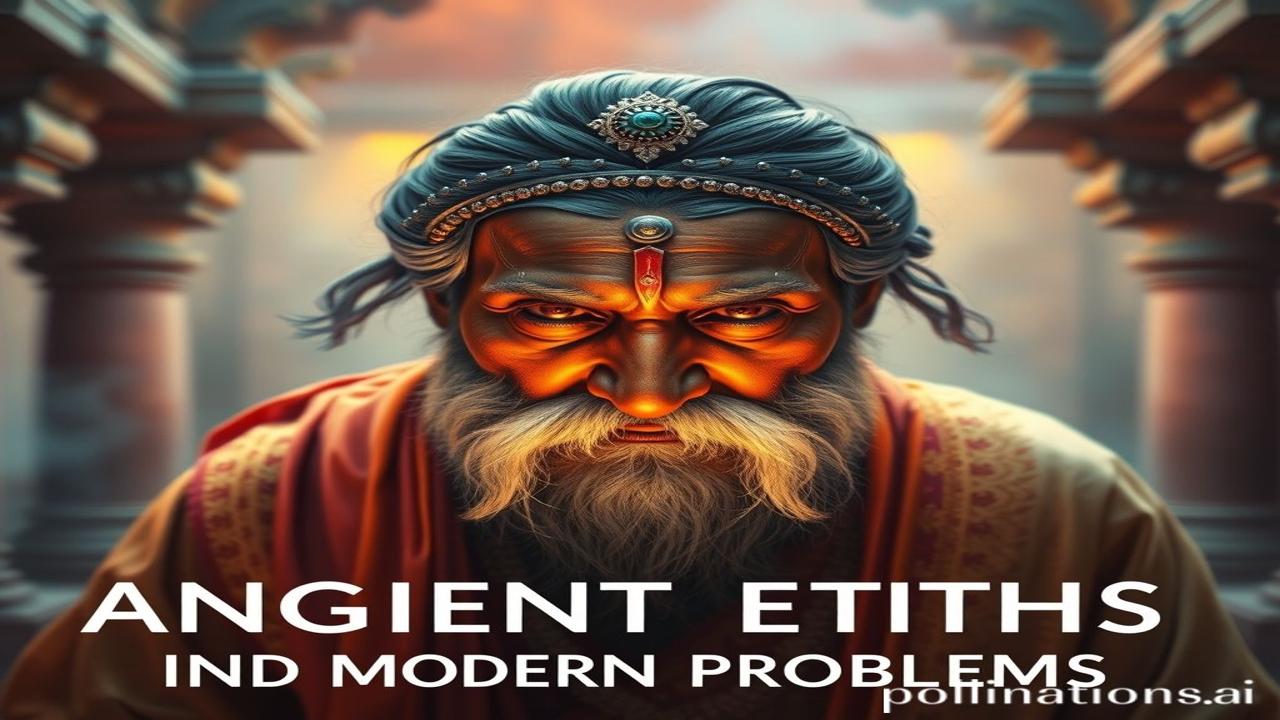Waqt Ke Panno Mein: Ancient Indian Ethics for Modern Problems
Kabhi socha hai, jab subah ki chai ki chuski lete hain, toh kitni saari cheezein hain jo hamein hamari jadon se jode rakhti hain? Jaise woh दादी माँ ki kahaniyan jo नैतिक मूल्यों se bhari hui hain, ya mandir ki ghantiyon ki awaaz jo har din ek naya sankalp dilati hai. Ye sab kya hai? Ye hai hamari प्राचीन भारतीय नैतिकता – ancient Indian ethics – jo aaj bhi, is tezi se badalte hue duniya mein, utni hi relevant hai jitni kabhi hua karti thi.
प्रागैतिहासिक नींव: Kya Hai Yeh Ethics?
Ancient Indian ethics, yaani प्राचीन भारतीय नैतिकता, is based on the philosophies of विभिन्न (various) schools of thought, jaise Jainism, Buddhism, और Hinduism. Yeh koi aisi cheez nahi hai jo ek din mein ban gayi. This is a culmination of centuries of wisdom, passed down through generations, codified in texts like the Vedas, Upanishads, Bhagavad Gita, and the Jain Agamas.
Ye ethics कब और कहाँ se aayi? Well, we’re talking about a timeline spanning thousands of years, from the Indus Valley Civilization (around 3300-1700 BCE) to the Mauryan Empire (322-185 BCE) and beyond. Different philosophical schools flourished in different regions of the Indian subcontinent.
Aur kyun yeh important hai? Kyunki yeh hamein batati hai ki kaise jeena hai. Kaise apne aap se, apne parivaar se, apne samaj se, aur prakriti se harmonious relationship banaye rakhni hai. These ethics provide a framework for making ethical decisions, for living a life of purpose, and for contributing to the well-being of all. Aaj, jab duniya mein itni challenges hain – climate change, inequality, social unrest – hamare ancient ethics hamein ek दिशा (direction) dikha sakti hain.
ज़मीनी सच – लोग और जीवन: Ek Din Ka Safar
Imagine, aaj se 2300 saal pehle, ek chhote se gaon mein, ek किसान (farmer) Subhuti apni kheti mein kaam kar raha hai. Subah suraj ki pehli kiran ke saath hi woh uthta hai. Woh sabse pehle dharti maa ko pranam karta hai, kyunki woh jaanta hai ki yeh dharti hi uski अन्नदाता (provider) hai.
“Bhagwan kare aaj barish achhi ho,” woh mann mein bolta hai.
Uski patni, Sita, घर ki saari jimmedariyan sambhalti hai. Woh jaldi se चूल्हे par aag jalati hai, aur apne parivaar ke liye भोजन (food) banati hai. Woh jaanti hai ki aaj bazar mein apne kapde bechne jaana hai, toh woh subah se hi tyari karti hai.
Sham ko, jab Subhuti aur Sita ghar lautate hain, toh woh apne बच्चों (children) ko Bhagavad Gita ke shlok sunate hain. Woh unhe satya, ahimsa, aur dharma ka mahatva samjhate hain. They believe that these values will help their children to live a good and meaningful life.
This daily life, simple yet profound, was guided by the principles of ancient Indian ethics. Rulers like Ashoka embraced these values, promoting peace and social welfare. Artisans took pride in their craft, creating beautiful works imbued with spiritual significance. Saints and philosophers dedicated their lives to understanding the nature of reality and spreading wisdom. The life of every individual was intertwined with the ethical fabric of society.
धरोहर और पहचान: Aaj Ki Bharatiyata Mein Ethics
Aaj bhi, hamein unhi प्राचीन नैतिक मूल्यों ka prabhav dikhta hai. From the way we celebrate festivals like Diwali, which symbolizes the triumph of good over evil, to the way we treat our elders with respect, to the importance we place on family and community.
The concept of “अतिथि देवो भव” (Atithi Devo Bhava) – treating guests as God – is a fundamental part of Indian culture, rooted in the ancient teachings of hospitality and compassion. Yoga and Ayurveda, ancient practices that promote physical and mental well-being, are now globally recognized and practiced.
Yeh values hi humari Bharatiyata ka hissa hain. They shape our identity and guide our actions. These are the threads that connect us to our past and give us hope for the future.
मजेदार तथ्य या भ्रम-भंजक: Myth-Buster!
Log samajhte hain ki ancient Indian ethics sirf सन्यासियों aur साधुओं ke liye hai. Lekin asli sach yeh hai ki yeh ethics har kisi ke liye hain, चाहे woh राजा ho ya रंक, चाहे woh गृहस्थ ho ya सन्यासी. These ethics provide a framework for living a virtuous life in all aspects of life.
Ek aur myth hai ki ancient Indian ethics सिर्फ पुरानी बातें hain. Lekin asli sach yeh hai ki yeh ethics aaj bhi utni hi relevant hain jitni kabhi hua karti thi. In fact, in a world facing so many challenges, these ethics can provide us with a path towards a more just, sustainable, and peaceful future.
दृश्य और भावनाएं: The Sensory World
Imagine the smell of incense wafting through the air in a bustling market. Feel the rough texture of hand-woven cotton against your skin. Hear the chants of mantras echoing through the ancient temples. See the vibrant colors of the rangoli adorning the entrance of a home. Taste the sweetness of the laddus offered as prasad.
These are the sensory experiences that connect us to our cultural heritage, that remind us of the richness and beauty of ancient Indian ethics.
अंतिम विचार या उद्धरण: The End of The Trail
“धर्मो रक्षति रक्षितः” – Dharmo Rakshati Rakshitah – Dharma protects those who protect it. This ancient Sanskrit verse encapsulates the essence of ancient Indian ethics. By upholding these values, we not only protect ourselves but also contribute to the well-being of society and the world. So let’s embrace our ancient wisdom and let it guide us on our journey to a better future.
Let the echoes of the past illuminate our path forward. Jai Hind!
